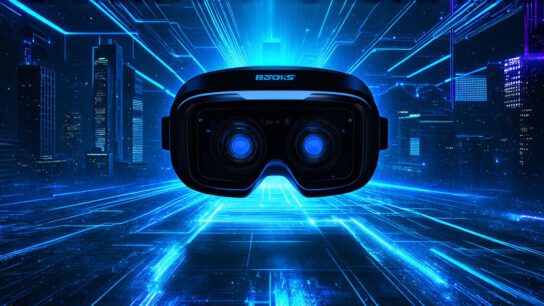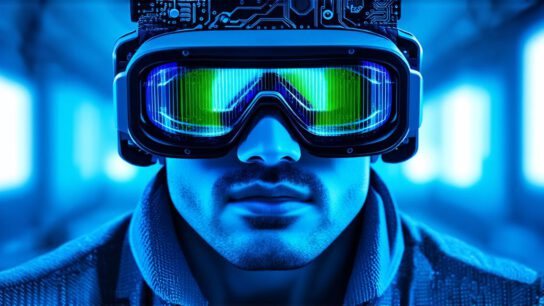Virtual Reality (VR) is revolutionizing the way we experience and interact with the world. From gaming to healthcare, VR has numerous applications that can improve our lives in various ways. One such area is mental health, where VR has shown promising results in treating conditions like anxiety, depression, and PTSD. In this article, we will explore the impact of virtual reality on mental health and how developers can leverage this technology to create immersive experiences that promote healing and well-being.
Virtual Reality and Mental Health: An Overview
Virtual Reality is a computer-generated simulation that allows users to immerse themselves in a digital environment. It can be used for various purposes, including entertainment, education, and therapy. In recent years, VR has gained popularity as a tool for treating mental health conditions. Studies have shown that VR can reduce symptoms of anxiety, depression, and PTSD by providing a safe and controlled environment for exposure therapy.
Exposure Therapy with Virtual Reality
Anxiety disorders are one of the most common mental health conditions, affecting millions of people worldwide. Exposure therapy is a common treatment for anxiety disorders, where patients are gradually exposed to situations or objects that trigger their fears in a controlled environment.
VR provides an ideal platform for exposure therapy as it can simulate real-life scenarios and provide a safe space for patients to confront their fears. For example, a patient with a fear of heights can use VR to simulate being on a tall building and gradually expose themselves to different heights until they become desensitized to the experience.
Virtual Reality and Anxiety Disorders
Anxiety disorders are one of the most common mental health conditions, affecting millions of people worldwide. Exposure therapy is an effective treatment for anxiety disorders, but it can be challenging to implement in real life due to safety concerns. VR provides a safe and controlled environment for exposure therapy, making it an attractive option for treating anxiety disorders.
Studies have shown that VR exposure therapy can reduce symptoms of anxiety disorders. In a study published in the Journal of Anxiety Disorders, participants who underwent VR exposure therapy for social anxiety disorder showed significant reductions in symptoms compared to those who did not receive treatment.
Virtual Reality and Depression
Depression is another common mental health condition, affecting millions of people worldwide. While there are various treatments for depression, some individuals may not respond to traditional therapies or medications. VR can provide an alternative treatment option for depression by providing a safe and controlled environment for exposure therapy.
Exposure therapy involves gradually exposing patients to situations or objects that trigger their negative emotions in a controlled environment. By simulating real-life scenarios, VR provides an ideal platform for exposure therapy for depression.
Virtual Reality and PTSD
Post-Traumatic Stress Disorder (PTSD) is a mental health condition that affects individuals who have experienced or witnessed a traumatic event. PTSD can lead to chronic anxiety, depression, and other mental health issues. Exposure therapy is an effective treatment for PTSD, but it can be challenging to implement in real life due to safety concerns. VR provides a safe and controlled environment for exposure therapy, making it an attractive option for treating PTSD.
Studies have shown that VR exposure therapy can be effective in reducing symptoms of PTSD. In a study published in the Journal of Traumatic Stress, participants who underwent VR exposure therapy for PTSD showed significant reductions in symptoms compared to those who did not receive treatment.
Virtual Reality and Mood Disorders
Mood disorders are a group of mental health conditions that affect an individual’s mood, including bipolar disorder and major depressive disorder. While there are various treatments for mood disorders, some individuals may not respond to traditional therapies or medications. VR can provide an alternative treatment option for mood disorders by providing a safe and controlled environment for exposure therapy.
Exposure therapy involves gradually exposing patients to situations or objects that trigger their negative emotions in a controlled environment. By simulating real-life scenarios, VR provides an ideal platform for exposure therapy for mood disorders.



